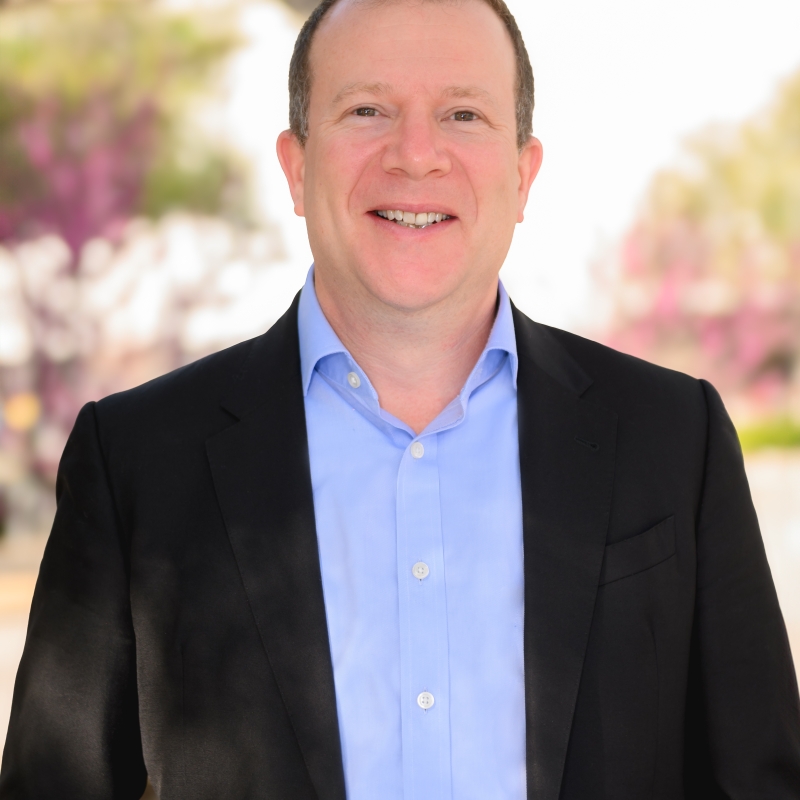Generative Search Optimisation (GEO) is the latest development in the PR and digital marketing world, as a result of generative AI.
While traditional SEO helped to push brand names to the top of a search engine, GEO will do the same for those using AI search and answer engines — Chat GPT, Gemini etc. As PRs have worked tirelessly to get clients' traditional SEO up to scratch, they are now facing a new challenge — creating the same level of optimisation for AI-driven search engines.
While it is abundantly clear that public relations professionals need to sit up and take notice of GEO, questions remain about whether this is a new friend to PR, or if the sudden need for AI-driven, algorithmic success could dilute the quality of work produced.
If you're still undecided about where you sit in the GEO debate, why not attend our free webinar: GEO, Misinformation and the News: The Impact of AI on Trust of the Media
We asked PR to give us their verdict on GEO and whether it will help, or hinder, the profession:
Friend
It's an evolution
Maneesha Bhangle, senior account manager at Thinking Hat Media: “Generative Engine Optimisation (GEO) is reshaping the way brands communicate. It's an evolution, not a threat, but it does present new hurdles.
“While the landscape is more fragmented with audiences turning to Google’s AI overviews, Gemini, ChatGPT, Perplexity and beyond, the fundamentals of effective content remain the same.
“At its heart, GEO still rewards what the E-E-A-T principles have always emphasised: experience, expertise, authority and trust. In fact, long-form authentic content is more important than ever.
“That means brands can’t afford shortcuts. Content has to demonstrate lived experience, provide genuine insights, and earn credibility through clear messaging, reputable sources, and consistency across platforms. For brands, this is less about fighting a new digital battlefield and more about ensuring the stories we craft are discoverable, quotable, and contextually relevant wherever the audience is searching.
“What makes GEO different is that each generative engine interprets and surfaces information in its own way. This fragmentation makes visibility harder to predict and measurement is still limited.
“Also, GEO is still evolving — formats, sourcing, and citation standards are changing fast. But, the opportunity outweighs the challenge, particularly for those who adapt early. Brands that invest in substance over spin, and commit to building authority, will see their content amplified across multiple generative platforms.”
It's our moment to shine
Jonny Bentwood, global president, data and analytics at Golin: “Looking at this shift through the lens of data and analytics, GEO represents an unprecedented opportunity rather than a battlefield. The numbers tell a compelling story: 90% of AI visibility comes from earned media, with PR professionals uniquely positioned to lead this transformation.
“What excites me most is the democratisation of influence. Unlike traditional SEO's $75 billion industry dominated by technical gatekeepers, GEO rewards authentic storytelling and quality content. The platforms dominating AI citations aren't succeeding through sophisticated strategies - they're simply the ones providing comprehensive, comparative information when brands focus solely on conversion pages.
“The data reveals the 80:20 rule in action in that typically one-third of AI recommendations for a brand come from just 10 websites. This isn't about gaming algorithms; it's about understanding what truly serves audiences. If I go to a brand’s website, it says “buy me”, whereas a GenAI will take information from multiple sites and give comparative data. It is therefore no surprise that 77% of GenZ and 89% of B2B buyers use GenAI in their purchasing process.
“Rather than creating a battlefield, GEO has given PR professionals our moment to shine. We understand earned media, we know how to craft narratives that resonate, and we're naturally aligned with what AI systems value. This isn't about competition – it's about evolution. PR is becoming the new SEO, and that's genuinely exciting.
Frenemy
It's too early to say
Paul Stollery, co-founder of Hard Numbers: “GEO is owned media and earned media combined — that's our domain, but it’s too early to say whether GEO is a friend or a foe.
“It’s less a new battlefield, and more a foggy landscape we don’t understand yet. We don’t know whether that shape coming out of the mist is reinforcements or an ambush.
“Study after study shows that earned media is the most trusted and most influential source of information for these platforms. But it’s also reshaping how people consume information – and we’re at the very beginning of that curve. In the late ’90s, nobody predicted TikTok. That’s the stage we are at with AI: change is certain, direction is not.
“The PR teams that win will be the ones who stay curious. Treat GEO like an academic subject — research, test, challenge assumptions. Avoid anyone who speaks with too much certainty; they’re probably selling snake oil.
“That uncertainty is also an opportunity. Brands will need real consultancy to guide them through the fog, not quick fixes or hacks. The firms that lean into exploration, and avoid easy answers, will be the ones leading when the mist finally clears.”
It may marginalise authentic voices
Viya Nsumbu, founder and director at Polele: "For mission-driven brands and organisations, GEO is a frenemy. It offers opportunities, but it also poses a structural threat.
"If LLMs are trained on outlets that dominate reach, mission-led organisations face a double bind. They already struggle to cut through; their absence in the sources GEO prioritises risks writing them out of the future altogether.
"This is not just about visibility. It is about influence. As AI systems scale, the gap between those with the resources to dominate narratives and those driving genuine impact will widen. The language of ‘purpose’ is already being co-opted by industries that cause harm. If GEO continues to learn from them, it will reinforce their framing and further marginalise authentic voices.
"The reality is that generative AI is here to stay, and as it continues to reshape search, GEO is mission critical. Organisations working for societal good need strategies that make their values and evidence visible, credible, and consistently present in the sources shaping tomorrow’s AI outputs. Otherwise, ‘purpose’ will not be defined by those building solutions, but by those accelerating the problems."
Foe
GEO is a by-product, not the point
Alex Warren, associate director at Wildfire: “All the latest studies show that web mentions are now the most influential factor in GEO. So it’s no surprise that PR agencies are suddenly rushing to rebrand themselves as ‘GEO specialists’.
“But, for me, we’ve been here before. In the early 2010s, PR was pulled into the murky world of SEO link building, where coverage was valued less for its audience and more for the hyperlink it carried. The focus shifted from communicating with people to serving algorithms. The result was a wave of low-quality, short-term tactics that damaged the industry’s credibility.
“Treating GEO as the core purpose of PR risks repeating the same mistake: reducing a discipline built on trust and influence into a temporary hack to please Google.
“GEO isn’t going away, and as PR professionals we should care about visibility. Mentions are a valid measure of impact. But our job isn’t to game the system — it’s to communicate clearly with our actual audience. Done properly, GEO visibility should be the outcome of strong PR, not its primary goal."
Ignore overblown statements
Colin Cather, director and co-owner at Bottle PR: "There’s more heat than light right now. LLM use is tiny, and its ‘search-like’ uses are smaller still.
"The frantic and overblown statements about what works for brand visibility and traffic are based on teeny-tiny experiments. We should all be experimenting, but so much of the evidence I see is applying SEO thinking to something that: isn’t a search engine even though they do retrieve from the internet and web content; isn't being used like a search engine; is continuously learning, even though some biases, preferences and habits were established in their training and behaves differently, with each model (ChatGPT vs Anthropic etc).
“We’re digital PR through and through, and our SEO team has always informed our findability tactics. We’ll keep learning and experimenting ourselves with the way AI LLMs play a role in brand-marketing. But the GEO thinking is premature, and coming from the wrong (SEO) toolkit.
“The bigger picture for marketers is that LLMs, just like Google, want to fetch what real people are looking for. So, create fresh, human insights and stories, and work to earn editorial authority, and social proof, so that people (and Google, and LLMs) will trust and respect the sources.”
PR Masterclass: The Intersection of PR and GEO
Wednesday 25th February, both virtual and in person tickets are available.
PR MasterclassIf you enjoyed this article, sign up for free to our twice weekly editorial alert.
We have six email alerts in total - covering ESG, internal comms, PR jobs and events. Enter your email address below to find out more:












